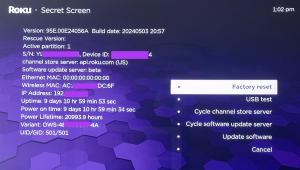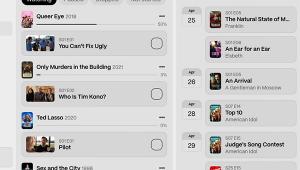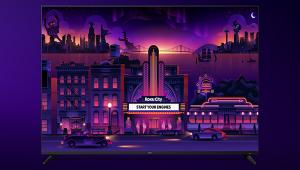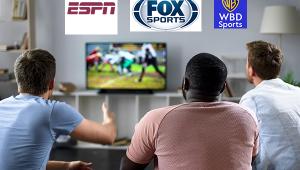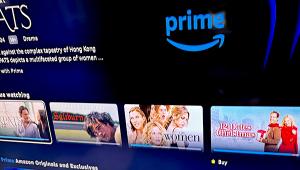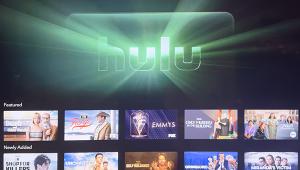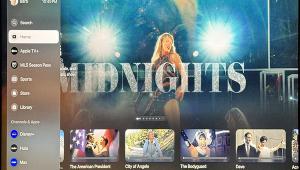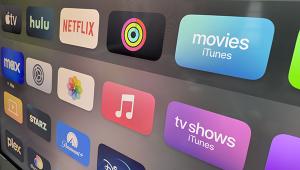I have not decided to cut the cord yet and here's way. 1st I still have Directv to get my sports packages like MLB and my local channels. Plus I have a PC and Time Warner Cable to get cable internet. Also I have a Sony PS3 an Xbox 360 to get my internet base apps like netflix , hulu , vudu for 1080p streaming for movies in hd and I use the ps3 for blu-ray discs and games as well. If I decided to cut the cord how whould I get my sports? I just could not live without Directv because of the sports blackouts issue MLB and other sports leagues have on the internet based sports app with local games. And yes cable companies should allow cable cards.
Scrambled Basic Cable, Anyone?

If the cable companies get their way, I may have to metaphorically splice the cable cord I had previously cut and pay for basic cable to get all my local stations. Cable companies are asking the Federal Communications Commission (FCC) to grant them permission to scramble (encrypt) basic cable channels, which would require a cable box or a device with a CableCard to decode them, incurring a monthly fee. This would overturn the FCC's 1992 Cable Act and subsequent 1994 ruling to keep basic cable (technically called Clear QAM) unscrambled to protect basic-tier consumers from cable companies requiring an extra box-rental fee.
One of the FCC's roles is to regulate the cable industry. Based on a 2010 exception granted to New York's Cablevision, the FCC started the process of a Notice of Proposed Rulemaking (NPRM). If this ruling passes, it will allow cable companies to encrypt basic cable and require a box or CableCard.
The cable companies have all kinds of cockamamie reasons about how this would serve consumers. Their biggest justification is that CableCards do not require an installer to go to your house and would therefore save gas on sending a truck. (Paradoxically, many cable companies have insisted that they must install a CableCard themselves because it requires access to the device's service menu.) Of course, that doesn't take into consideration your own gas to drive to the cable TV office to pick up the card, nor does it take into account those customers who are technologically challenged.
I suspect the real reason that cable companies are pushing for encrypted basic cable has more to do with "cord cutters" like me who get their broadband Internet from their cable company and can tap the line to get basic cable TV. At this time, there are few of us, but the cable industry undoubtedly fears that we are the trendsetters.
In a letter to the FCC, the National Cable and Telecommunications Association (NCTA) wrote: "Because broadband and video are delivered over the same cable line, [t]hat single cable provides Internet-only customers not only with the Internet service to which they have subscribed, but also with the opportunity to use a QAM tuner to illicitly watch unencrypted basic-tier programming. If all channels are encrypted, there is less ability for individuals to manipulate equipment to obtain unauthorized access to service..." In other words, the cable companies know that people are cutting the cord, and they want to discourage it. Still, 95 percent of U.S. households are pay-TV subscribers. Relatively few people have canceled cable and kept their Internet service.
The cable companies' description of individuals who "manipulate equipment" makes us sound as though we are hacking into a computer. I simply connected a cable from the wall jack to my cable-ready TV. What's more, how many people who pay for broadband Internet are like me? I didn't realize I was stealing basic cable for those few weeks. It was just a few channels, and I was already paying over $100 per month to the cable company—and more than $200 in Internet overage fees!
While perusing the comments to the FCC about the NPRM, I saw a letter from my local cable company, Bend Cable. The letter refers to the 4,400 broadband Internet subscribers who could potentially steal basic cable. And now Bend Cable says that encrypted cable is the only alternative to spending $700,000 to stop me and the other 4,399 potential cable outlaws.
As you might imagine, many companies and organizations oppose the NPRM. For example check out the documents filed by Boxee and the Consumer Electronics Association (CEA) as well as the AllVid Alliance, an industry consortium that is working on a standard to replace CableCard technology with a solution that would work for both cable and streaming. Devices like Boxee Live TV, Elgato EyeTV, and others connect to antennas or basic cable. They can serve as alternatives to set-top boxes, offering extra services; for example, Boxee Live TV displays extended show information and lets users tell their Boxee friends what they are watching. Other devices like EyeTV and Hauppauge connect to your computer and record live TV when attached to an antenna or basic cable. If the ruling passes, these devices, as well as your cable-ready TV, would require a CableCard and a monthly fee.
CableCards were meant to be an interim technology until an AllVid solution could be found that would work for both cable TV and streaming media. Boxee and the other organizations believe that spending time to develop devices that would work with CableCards is off-track from innovation toward a real solution.
Avner Ronen, CEO of Boxee, and I discussed how putting money into traps that block broadband subscribers from basic cable or financing CableCard use is the wrong direction. Ronen suggests that cable companies could be "looking into creating access to basic channels over IP instead of CableCards." Some examples already exist. Comcast uses the Xfinity app to stream cable programming from the Internet to smart TVs, media streamers including the Xbox360, and mobile devices.
Interestingly, my discussion with Amy Tykeson, CEO of Bend Cable Communications and a supporter of the proposed encrypted basic-cable rule, pointed to the same future goal of IP delivery of cable TV. Until technology is in place for Internet delivery of your channels, she sees two solutions for making sure that everyone who receives basic cable pays for it: 1) Put physical analog "traps" on the lines at houses with Internet but no cable subscription, or 2) encrypt basic cable.
Tykeson says that Bend Cable has "worked hard to be one of the first full digital cable systems in the country." Ironically, analog traps would inhibit its ability to monitor those homes and would put noise on the lines, undermining the company's goals of offering faster speeds, best performance, and the shortest repair times.
Investing in forced CableCard adoption is not in the best interest of consumers. Ronen asserts that "this is not the kind of rule-making that the FCC should adopt—encrypting content and not providing access to local channels, especially for those who can't get them with an antenna. It goes against what the FCC stands for. The FCC's role is to protect consumers from monopolies and foster innovation—this is the wrong direction."
As for me, I've given up my cord-cutter status and had a new Dish Network satellite system installed (with the new Hopper and Joey boxes) so I can test it. I am no longer an illicit cable-TV crook, and I can fall asleep to TV without worrying about Internet overages.
You can read others' comments on this issue here and submit your own comments here. When submitting a comment, refer to proceeding number 11-169.
Have you cut the cord to your cable-TV service? If so, how have you fared in the experience? Do you think that cable companies should be allowed to scramble basic cable and require you rent a box or CableCard?
- Log in or register to post comments


The author doesn't mention if her basic cable service is in HD or not. Hope it is, cause SD sucks on a big screen.
Our Comcast issued free boxes last July to those who subscribe to basic cable, which was being scrambled for reasons that remain a mystery to me. I inserted an A/B switch that would allow me to watch my 5 local stations in HD. Now, Comcast is in the process of scrambling these 5 HD channels in order to force us to pay for the "privilege" of viewing local content in HD. Fortunately, I can receive excellent signals OTA, & since I'm already hooked up to an HD receiver in another room that the big screen occupies, I can live w/SD on the 26 incher in the bedroom.

The links for fcc.gov that you included are broken :(

Can you fix the links so that we can comment to the FCC.

Just found out that Cablevision will require all basic cable subscribers to use a set top box.(right now there is no cable box for basic service). This is no good for me, I have my own DVR's (Magnavox) in each room where there is a TV. Cable boxes make using your own DVR a real pain. Since 90% of what we watch is network I am hoping to cut the cord if I can get the right antenna.

As I posted earlier Cablevision (Optimum) has informed us that by May 15th all basic cable subscribers must use a cablebox. I have put up an antenna and I can receive all the broadcast network stations from NYC so I am about to switch to free HDTV and say goodbye cable. I assume the 2010 "exception" granted to Cablevision by the FCC covers this move?

This would overturn the FCC's 1992 Cable Act and subsequent 1994 ruling to keep basic cable (technically called Clear QAM) unscrambled to protect basic-tier consumers from cable companies requiring an extra box-rental fee.



